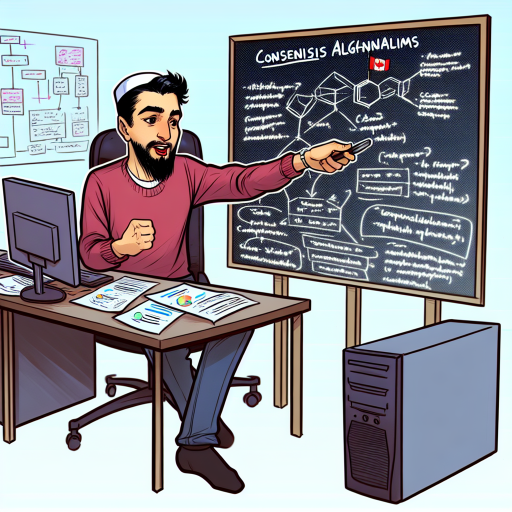Understanding Cloud Computing Fundamentals
Definition of Cloud Computing
Cloud computing involves delivering computing services over the internet.
It provides access to storage, databases, servers, software, and analytics.
Businesses leverage cloud services for flexible resources and faster innovation.
Types of Cloud Services
The main types of cloud services include Infrastructure as a Service (IaaS).
Additionally, Platform as a Service (PaaS) is another key offering.
Software as a Service (SaaS) provides ready-to-use applications.
Each service type serves different business needs.
Deployment Models
Cloud computing can take different deployment forms.
Public clouds are owned by third-party providers offering services over the internet.
Private clouds offer dedicated resources for a single organization.
Hybrid clouds combine both public and private cloud models.
Benefits of Cloud Computing
One major benefit is cost efficiency through reduced hardware investments.
Scalability allows businesses to adjust resources based on demand.
Moreover, cloud computing supports remote work by providing access to data anywhere.
It also enhances collaboration among teams with cloud-based tools.
Security Considerations
Despite many advantages, cloud computing has security challenges.
Data breaches and unauthorized access are significant concerns.
Organizations must implement measures such as encryption and access controls.
Future Trends in Cloud Computing
The cloud landscape is constantly evolving.
Emerging technologies like artificial intelligence are impacting cloud services.
Edge computing is another trend, bringing processing closer to data sources.
Additionally, multi-cloud strategies are becoming popular among businesses.
Key Skills and Competencies for a Cloud Solutions Architect
Understanding Cloud Architecture
A deep understanding of cloud architecture principles is essential.
This encompasses knowledge of cloud service models like IaaS, PaaS, and SaaS.
Additionally, familiarity with cloud providers such as AWS, Azure, and Google Cloud is crucial.
Unlock Your Career Potential
Visualize a clear path to success with our tailored Career Consulting service. Personalized insights in just 1-3 days.
Get StartedArchitects must also grasp the significance of cloud-native design strategies.
Technical Proficiency
Technical skills are vital for a Cloud Solutions Architect.
Proficiency in programming languages like Python, Java, or JavaScript is necessary.
Moreover, knowledge of containerization technologies such as Docker and Kubernetes is beneficial.
Experience with CI/CD pipelines can enhance deployment processes.
Understanding databases, both SQL and NoSQL, is equally important.
Security Best Practices
Security is a primary concern in cloud environments.
Architects should understand cloud security frameworks and compliance regulations.
Knowledge of encryption methods for data at rest and in transit is essential.
Additionally, they must implement identity and access management best practices.
Soft Skills and Collaboration
Soft skills play a pivotal role in a Cloud Solutions Architect’s success.
Strong communication skills help convey complex technical concepts to stakeholders.
Moreover, collaboration with cross-functional teams is necessary for project success.
Problem-solving skills are essential for addressing technical challenges effectively.
Cost Management and Optimization
Understanding cloud cost management is critical for architects.
They should analyze and optimize resource usage to minimize costs.
Knowledge of pricing models for various cloud services aids in budget planning.
Additionally, architects need to evaluate cost implications during design decisions.
Common Technical Interview Questions for Cloud Solutions Architects
Understanding Cloud Architecture
The interviewer may ask you to define cloud architecture.
Provide a clear explanation of its components and layers.
Be prepared to discuss different cloud service models as well.
Differentiate between IaaS, PaaS, and SaaS succinctly.
Additionally, explain public, private, and hybrid cloud options.
Designing Cloud Solutions
Expect questions about how you design cloud solutions.
Describe your process for assessing requirements first.
Discuss how you ensure scalability and availability in design.
Emphasize the importance of disaster recovery planning.
Consider sharing a real-world example of a solution you designed.
Security in the Cloud
Interviewers often focus on cloud security topics.
Explain your approach to securing cloud environments.
Mention tools and practices for data encryption and identity management.
Address compliance standards like GDPR or HIPAA as well.
It’s important to demonstrate your understanding of security best practices.
Migration Strategies
Prepare to discuss cloud migration strategies during the interview.
Share methods you’ve used for successful data migration.
Talk about the challenges faced and how you overcame them.
Be ready to suggest tools that assist with the migration process.
Highlight the importance of testing after migration completion.
DevOps and Automation
DevOps practices are key in cloud operations.
Describe your experience with CI/CD pipelines and tools.
Discuss how automation can enhance cloud efficiency.
Explain version control practices and their significance.
Provide examples of successful automation implemented in your projects.
Cloud Cost Management
An understanding of cost management is crucial for cloud architects.
Discuss techniques for monitoring and optimizing cloud expenses.
Explain how to balance performance with budget constraints.
Mention any tools you’ve used for cost analysis in the cloud.
Share insights on forecasting cloud costs for projects.
Learn More: Challenges Faced by Cloud Solutions Architects in Canada
Scenario-Based Questions to Assess Problem-Solving Skills
Why Scenario-Based Questions Matter
Scenario-based questions provide insight into a candidate’s problem-solving capabilities.
They simulate real-world challenges faced by cloud solutions architects.
Additionally, these questions reveal how candidates approach complex situations.
Key Areas to Explore
Focus on several critical areas during the interview process.
Evaluate the candidate’s technical expertise and adaptability.
Consider their ability to communicate effectively with cross-functional teams.
Assess their understanding of cloud security and compliance requirements.
Sample Scenario Questions
- Describe a time you migrated a large application to the cloud.
- How did you ensure data security during the migration?
- What steps did you take to minimize downtime?
These questions gauge both technical and strategic thinking.
Assessing Response Quality
Look for structured answers that detail the candidate’s approach.
Evaluate how candidates prioritize tasks in challenging circumstances.
Pay attention to examples that demonstrate creativity and innovation.
Follow-Up Questions to Deepen Understanding
Utilize follow-up questions to clarify the candidate’s responses.
Ask about challenges they faced during the scenario.
Inquire how they adapted their strategy based on feedback.
Evaluating the Overall Fit
Finally, assess how well candidates align with the organization’s culture.
Inquire about their experiences working in team-oriented environments.
Evaluate their enthusiasm for continuous learning and development.
Delve into the Subject: How to Become a Cloud Solutions Architect in Canada
Behavioral Questions to Evaluate Cultural Fit and Team Collaboration
Understanding Team Dynamics
Team dynamics play a vital role in successful project delivery.
Evaluate how candidates adapt to group settings.
Ask them to describe their approach to collaboration.
Inquire about experiences working with diverse teams.
Explore how they handle conflicts that arise within teams.
Promoting Inclusive Work Environments
An inclusive work environment fosters innovation and creativity.
Ask candidates how they contribute to inclusivity at work.
Query how they ensure everyone’s voice is heard during discussions.
Seek examples of how they have supported team members.
Understanding their perspective on inclusivity is crucial.
Adapting to Company Culture
Every company has a unique culture that influences its operations.
Explore how candidates have adapted to different organizational cultures.
Ask how they align their values with company policies.
Inquire about their most significant cultural clashes and resolutions.
This helps gauge their potential fit within your organization.
Learning from Challenges
Challenges often lead to valuable learning opportunities.
Ask candidates to share a challenging project experience.
Inquire about the lessons learned during difficult times.
Understanding their growth mindset helps predict future behavior.
It also reveals how they handle setbacks effectively.
Communication Styles and Effectiveness
Effective communication is key to successful teamwork.
Ask about their preferred communication methods with team members.
Inquire how they adapt their communication style to different audiences.
Explore their approach to giving and receiving feedback.
Engaging in open dialogue can highlight their adaptability.
See Related Content: Skills Required to Excel as a Cloud Solutions Architect

Best Practices for Designing Scalable Cloud Architectures
Understanding Scalability
Scalability refers to a system’s ability to handle increased load.
A scalable architecture can efficiently manage growth without major adjustments.
It supports both vertical and horizontal scaling models.
Vertical scaling involves adding resources to existing nodes.
Horizontal scaling adds more nodes to distribute load effectively.
Implementing Microservices
Microservices architecture enhances scalability through modular design.
Each service operates independently, enabling targeted enhancements.
Additionally, it simplifies troubleshooting and maintenance processes.
Leveraging Auto-Scaling Features
Auto-scaling allows systems to adjust resources dynamically.
This feature responds to real-time traffic changes automatically.
Utilizing cloud services with auto-scaling enhances resilience and efficiency.
Utilizing Load Balancers
Load balancers distribute incoming traffic across multiple servers.
They enhance application reliability and minimize downtime.
Moreover, they prevent server overload and ensure consistent performance.
Incorporating Caching Mechanisms
Caching improves performance by storing frequently accessed data.
It reduces latency and lowers the load on primary databases.
Implementing caching strategies maximizes user experience and resource efficiency.
Monitoring and Performance Optimization
Regular monitoring provides insights into system performance.
Effective tools track metrics like response time and resource usage.
Continuous optimization leads to sustained scalability and reliability.
Designing for Fault Tolerance
Fault-tolerant systems can withstand failures without service disruption.
Redundant resources and automated failover mechanisms are essential.
This approach enhances user confidence and overall system stability.
Choosing the Right Cloud Provider
Selecting an appropriate cloud provider is critical for scalable architecture.
Evaluate options based on performance, support, and pricing.
Additionally, consider the provider’s reputation for reliability and uptime.
You Might Also Like: Career Tips for ERP Consultants Entering the Job Market
Knowledge of Specific Cloud Platforms
Understanding AWS
AWS is a leading cloud platform with a wide market presence.
A strong candidate should be familiar with core AWS services.
Key services include EC2, S3, and RDS.
Moreover, knowledge of AWS architecture best practices is essential.
Understanding pricing models and cost management tools is beneficial.
Finally, candidates should know about AWS security best practices.
Familiarity with Azure
Azure is a major competitor in the cloud computing space.
Candidates must understand popular Azure services such as Azure Functions and Azure App Services.
Additionally, they should be comfortable with Azure monitoring tools.
Familiarity with pricing calculators and resource management strategies is crucial.
Furthermore, knowledge of Azure’s compliance offerings can set a candidate apart.
Proficiency in Google Cloud Platform
Google Cloud Platform (GCP) is known for its data analytics capabilities.
Candidates must be familiar with services like BigQuery and Dataflow.
Understanding GCP’s machine learning tools can also be an advantage.
Moreover, knowledge of GCP’s security model is vital.
Candidates should be aware of its hybrid cloud solutions as well.
Comparative Knowledge
Comparing different cloud platforms helps in understanding their strengths.
Candidates should articulate their experiences with multi-cloud strategies.
It’s crucial to know how to integrate services across AWS, Azure, and GCP.
Effective cloud architecture often involves leveraging multiple providers.
Furthermore, adaptability to changing technologies is essential in this field.
Role of Security in Cloud Architecture and Related Interview Questions
Understanding Cloud Security Fundamentals
Cloud security is vital to protect sensitive information stored online.
It involves various measures to prevent unauthorized access.
Additionally, compliance with regulations is essential for data protection.
Key Cloud Security Concepts
Cloud security encompasses data encryption, identity management, and threat detection.
Encryption secures data both in transit and at rest.
Identity management ensures that only authorized users access cloud resources.
Threat detection systems actively monitor for unusual activity.
Interview Questions on Cloud Security
Hiring managers often ask specific questions to gauge expertise.
- What security measures do you consider essential in a cloud architecture?
- How do you manage user identities and permissions in a cloud environment?
- Can you explain how encryption improves cloud data security?
- What are some common threats to cloud security, and how can they be mitigated?
- How do you ensure compliance with data protection regulations in the cloud?
Best Practices for Cloud Security
Implementing best practices is crucial for a strong security posture.
Regular audits can help identify vulnerabilities in cloud configurations.
Maintaining an updated incident response plan enables quick reactions to breaches.
Training teams on security protocols enhances overall cloud security awareness.
Real-World Security Challenges
Organizations face diverse security challenges when migrating to the cloud.
Data breaches from misconfigured settings can have dire consequences.
Additionally, insider threats can jeopardize sensitive information.
Understanding these challenges is essential for any cloud architect.
Additional Resources
The Age of AI has begun | Bill Gates
Career in Cloud Computing or Cyber Security-Which is Better?




